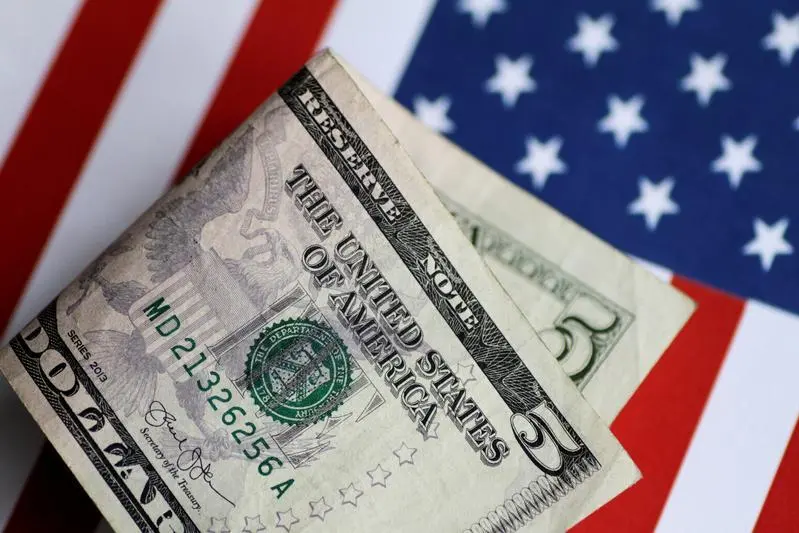PHOTO
LONDON - The dollar pulled back from a two-month high against a basket of currencies on Monday as equities rallied after four straight weeks of declines ahead of a slew of economic data and political developments in the United States. A rebound in U.S. stocks at the end of last week helped slow the climb of the dollar, considered a safe haven, but signs of a slowdown in the nascent recovery from the pandemic and political uncertainties have kept investors on the defensive.
Major indexes on Wall Street were up more than 1% as stocks bounced after four straight weeks of declines. On Sunday, U.S. House Speaker Nancy Pelosi said she thought a deal could be reached with the White House on a fresh coronavirus relief package as talks continued.
"Unless the labor market has a really terrible number this week, if it is steady we might not get stimulus until after the election so I don’t think anyone is holding their breath on that right now," said Edward Moya, senior market analyst at OANDA in New York.
"If the stocks are rising, in this current time you can’t have a stronger dollar and that is going to continue to be the case but you are going to see choppy trade this week."
The dollar index slipped as low as 94.155 and last fell 0.36%, on pace for its biggest daily percentage drop in a month. The greenback reached a two-month high of 94.745 last week and posted its biggest weekly rise since early April. Against the yen, the dollar was more subdued at 105.45 yen.
Sterling was last trading at $1.2884, up 1.16% on hopes Britain could secure a Brexit trade deal with the EU.
The euro gained 0.34% to $1.1669 after dropping to $1.16125 on Friday, its lowest in two months.
Friday's data on U.S. currency futures positions also suggested the dollar had room to rise further, with speculators holding a big net short position in the currency which they could move to cover if the dollar moves higher.
U.S. Commodity Futures Trading Commission's broad measure of dollar positioning showed speculators' net short position rose to $33.989 billion last week NETUSDALL= , up from $31.524 billion the week before and near its highest in almost a decade.
The flip side of that was a large net long position in the euro, which inched up last week to $27.922 billion.
Investor attention may now turn to the first U.S. presidential debate on Tuesday.
Meanwhile, worries abound that the economic recovery is stalling as many stimulus programs have expired, curbing consumer spending.
This week will bring more data on the health of the world's biggest economy, including consumer confidence on Tuesday, a manufacturing survey and consumer data on Thursday, and jobs figures on Friday.
(Reporting by Chuck Mikolajczak; Editing by Hugh Lawson) ((charles.mikolajczak@tr.com; @ChuckMik; Reuters Messaging: charles.mikolajczak.thomsonreuters.com@reuters.net))





















